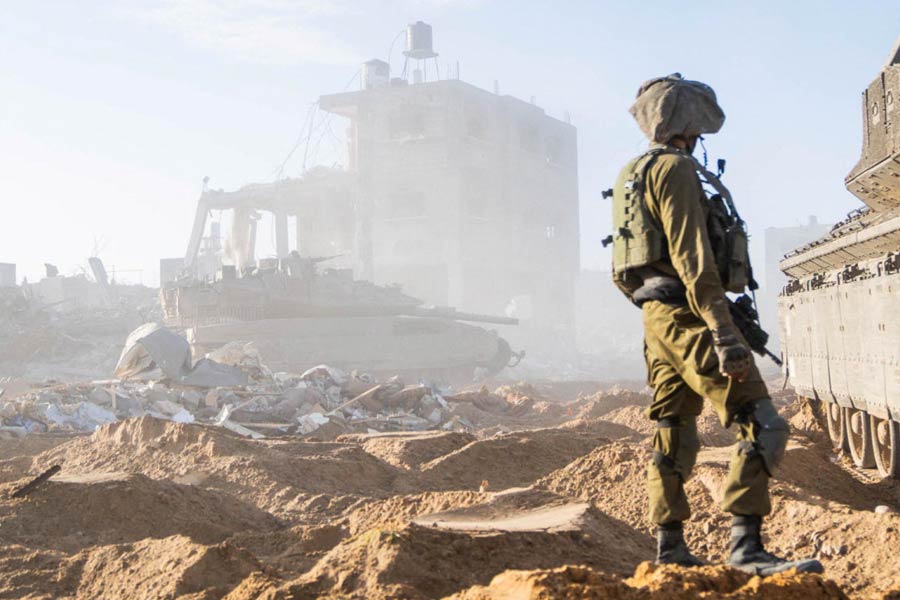Six months since it began, Israel’s war with Hamas in Gaza appears to have reached an impasse that analysts and diplomats say has no resolution in sight, even as experts warn of famine, Gaza’s health system collapses and the death toll continues to climb.
Mediators have found it difficult to advance negotiations for a truce in Gaza, with Israel reluctant to agree to a ceasefire that allows Hamas to regroup in parts of Gaza, and Hamas wary of proposals that do not ensure its long-term survival.
Although Israel has routed Hamas in much of Gaza, and fighting seems to have slowed, the conflict is being drawn out by Israel’s reluctance to either hold ground it has captured or transfer its control to an alternative Palestinian leadership, creating a power vacuum.
In some places, that vacuum has allowed remnants of Hamas to regroup, prompting Israeli troops to raid parts of northern Gaza that they had already conquered and vacated, like Al-Shifa Hospital in Gaza City. Elsewhere, the vacuum has led to a breakdown in civil order, making it harder to safely distribute badly needed aid. Scores of Palestinians have been killed around aid convoys, amid chaos and Israeli fire.
The stasis has been prolonged by Hamas’s determination to hold onto Rafah, the city in southern Gaza that has become its last major stronghold, and by Israel’s decision to hold off on a promised ground invasion that US officials have warned would create a humanitarian disaster.
By dragging on for so long, the war has become the longest involving Israel since the 1980s, with ramifications far beyond the Gazan border. It has heightened domestic pressure on President Biden, who has continued to supply arms to Israel even as he expresses greater alarm over its actions.
Ceasefire talks
International mediators were set to meet in Cairo on Sunday to pick up negotiations aimed at brokering a temporary cease-fire in Gaza and the release of hostages held in the enclave.
Officials from the US, Egypt and Qatar were expected in Cairo, along with delegations from Israel and from Hamas. President Biden is pressing participants to make a deal, but it is not clear whether new proposals will be on the table.
The talks, which have been stalled for months, come as tensions in the region are mounting. Iran vowed on Friday to avenge an Israeli strike on an Iranian embassy building in Syria earlier in the week that killed senior commanders of Iran’s elite Quds Force. Israelis were still bracing for retaliation on Sunday, although the timing and potential shape of a possible attack were not clear.
Biden spoke to Prime Minister Benjamin Netanyahu of Israel by phone on Thursday, repeating his call for a negotiated deal that would result in an “immediate ceasefire” and the release of hostages.
New York Times News Service











